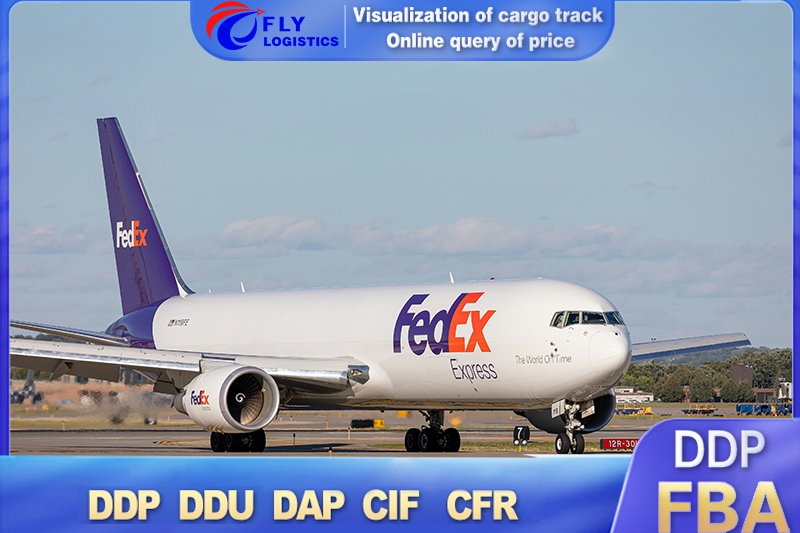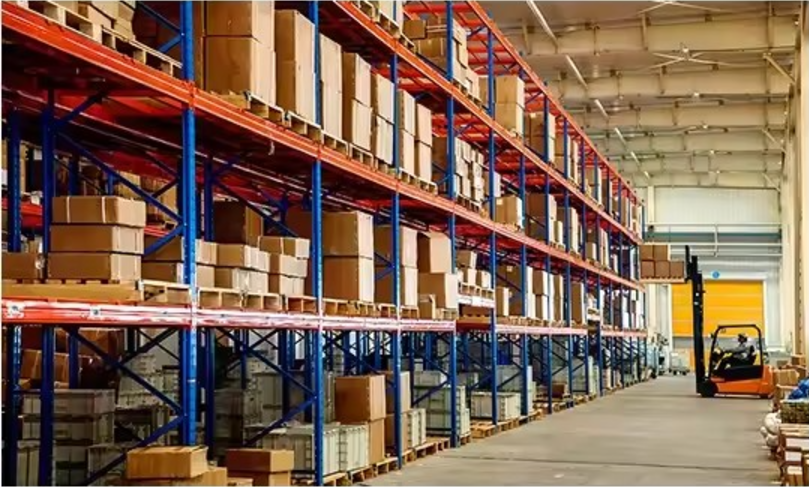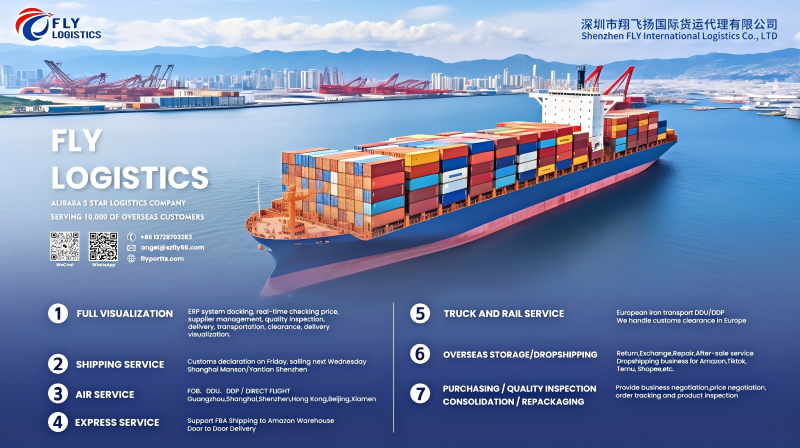According to the industry, e-commerce will remain the main driver of air cargo growth this year, as it will be in 2024. Despite the economic and political challenges facing the world, the market remains very strong and resilient, and this will continue until 2025.
The E-commerce Boom: A Catalyst for Air Cargo Growth
The International Air Transport Association (IATA) reports that global air cargo demand will grow by 11.3% in 2024, surpassing the record set in 2021. The growth is driven by the e-commerce boom and ocean freight disruptions, keeping demand and rates high. E-commerce is no longer a niche market but a dominant force in global retail. According to a report by Statista, global e-commerce sales are expected to surpass $6.5 trillion by 2025, representing an annual growth rate of around 10%. This massive growth is creating an insatiable demand for logistics services that can accommodate the speed, volume, and complexity of modern online shopping.
The nature of e-commerce itself is heavily reliant on efficient logistics and transportation networks. The rise of same-day and next-day delivery options, popularized by companies like Amazon, has pushed air freight shipping to the forefront as the preferred mode of transport for time-sensitive goods. Air freight offers the fastest delivery times compared to ocean and road transport, making it essential for industries that rely on quick turnaround times and high-value, lightweight products.
In 2025, e-commerce will continue to drive demand for air cargo, with forecasts suggesting that air freight volumes will grow by 4-5% annually. This growth is driven not only by traditional e-commerce giants but also by smaller players, as well as industries like fashion, electronics, and pharmaceuticals, all of which rely heavily on air cargo for rapid delivery of goods.
Key Factors Driving Air Cargo Growth
- Rising Consumer Expectations: Today’s consumers demand faster delivery times than ever before. The “Amazon effect” has set new standards for delivery speeds, with consumers increasingly expecting their purchases to arrive within 24 to 48 hours. Meeting these expectations requires an efficient logistics system, and air freight shipping is often the only mode of transport that can handle such rapid delivery timelines. Furthermore, the rise of global e-commerce platforms has made international shopping more accessible, leading to increased demand for cross-border air freight services.
- Increased Cross-Border E-Commerce: Global e-commerce is expanding beyond national borders, with international sales expected to reach over $1 trillion by 2025. Cross-border e-commerce is inherently more complex than domestic transactions, often requiring faster, more reliable transportation options to manage customs, regulations, and geographical challenges. Air cargo is particularly well-suited for international shipping, offering a quicker and more efficient way to move goods between continents. This demand for global shipping has become a major growth driver for the air cargo industry.
- Advances in Technology: Technology is playing a crucial role in the ongoing expansion of both e-commerce and air freight shipping. Advanced tracking systems, digital platforms, and automation tools have improved the efficiency of air freight operations. E-commerce companies are leveraging big data, AI, and machine learning algorithms to predict consumer demand and optimize shipping routes. In air cargo, these technologies enable better inventory management, real-time tracking, and predictive maintenance, which reduces costs and enhances operational efficiency.
- Evolving Consumer Goods: E-commerce has brought about a shift in the types of products being bought online. While many consumer goods, such as clothing and electronics, are already well-established in e-commerce, new sectors are growing rapidly. Health and beauty products, gourmet food, and even perishable goods are being transported by air. Air freight has proven to be an essential solution for these industries due to the speed and temperature-sensitive nature of many of the items involved.
- The Rise of E-commerce Platforms in Emerging Markets: As e-commerce continues to grow in emerging markets, particularly in Asia, Latin America, and Africa, the demand for air cargo services has skyrocketed. In countries like China and India, where the middle class is rapidly expanding, a new generation of consumers is embracing online shopping, and international air freight is critical for facilitating these transactions. As the volume of shipments between regions grows, so too does the need for efficient air freight shipping solutions.

The Impact of E-commerce on Air Cargo Infrastructure
The growth of e-commerce is not only increasing demand for air freight shipping but also reshaping the infrastructure that supports it. Airlines and logistics providers are investing heavily in expanding their air cargo operations, upgrading existing hubs, and developing new ones to meet the growing demand.
Investment in Airports and Air Cargo Terminals
To handle the increased volume of air freight, airports around the world are investing in more advanced cargo-handling facilities. This includes expanding air freight shipping terminals, improving storage and sorting systems, and increasing the number of dedicated cargo flights. Major airports like Singapore Changi, Dubai International, and Hong Kong International are all investing in expanding their cargo operations to handle growing e-commerce volumes. The development of specialized infrastructure, such as temperature-controlled warehouses for pharmaceuticals and perishables, is also increasing to cater to the diverse needs of e-commerce shipments.
Growth of Dedicated Air Cargo Airlines
In response to e-commerce demand, a growing number of airlines are either expanding their dedicated cargo fleets or establishing air freight shipping divisions. Companies like DHL Express, UPS, and FedEx are increasing their capacity for express deliveries, often through the acquisition of more dedicated freighters. This is essential for maintaining fast and reliable delivery schedules, especially for cross-border shipments.
Moreover, new players are entering the market, such as regional carriers in emerging markets, who are focusing exclusively on air cargo services. FLY LOGISTICS, as an experienced international freight forwarder, offers high-quality air freight services, with a particular focus on small package express delivery. The company maintains long-term and stable partnerships with renowned airlines and international courier services, such as DHL, FedEx, UPS, and TNT, ensuring that small packages can be safely and quickly shipped from China to major markets worldwide, especially to the US, Canada, the UK, and European countries.
The Future Outlook for Air Cargo
Looking toward 2025, the outlook for air freight shipping remains optimistic, with e-commerce serving as the primary driver of growth. As consumer preferences continue to evolve, e-commerce companies will increasingly rely on air cargo to ensure rapid and reliable deliveries. Additionally, the expansion of e-commerce in emerging markets will continue to fuel demand for air freight services.
To capitalize on this growth, airlines, logistics providers, and e-commerce companies must work together to overcome the challenges facing the sector. By investing in infrastructure, adopting new technologies, and addressing environmental concerns, the air cargo industry can continue to meet the demands of the global e-commerce market.
In conclusion, air freight shipping’s role in the e-commerce supply chain will only grow more vital in the coming years. With technological advancements, greater consumer expectations, and the continued expansion of global online retail, air freight will remain the backbone of efficient and rapid delivery systems.
FLY LOGISTICS supports air freight to port, overseas warehouse self-pickup, door-to-door, labeling and re-labeling, packaging change, customs clearance, insurance and other additional services. We look forward to establishing long-term and good cooperative relations with merchants on major cross-border e-commerce platforms such as TIKTOK, AMAZON, TEMU, SHOPIFY, etc. We will provide special discounts and value-for-money full-process tracking services for new customers who cooperate for the first time.





